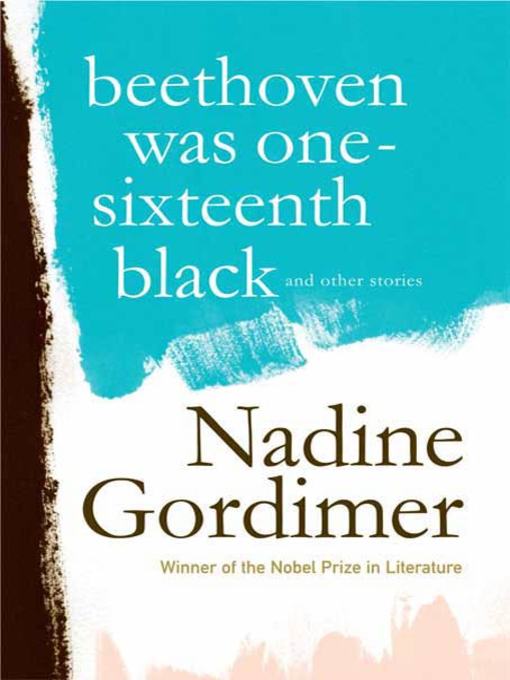
Beethoven Was One-Sixteenth Black
And Other Stories
کتاب های مرتبط
- اطلاعات
- نقد و بررسی
- دیدگاه کاربران
نقد و بررسی

Starred review from September 10, 2007
Thirteen stories from South African Nobel Prize–winner Gordimer offer a staccato demonstration of how people’s origins, inheritances and histories—and the loss of them—are inescapable. The title story centers on the white, twice-divorced academic descendant of a London diamond prospector who visits his forebear’s mine in Kimberly, South Africa, and wonders about who in the township, black and white, he may be related to. The narrator of “Dreaming of the Dead” is haunted by famous former companions (the late intellectuals Edward Said and Susan Sontag), while the grieving widow of “Allesverloren
” (or “All Is Lost”) seeks out her husband’s former lover to unearth a message from him. The daughter of “A Beneficiary,” meanwhile, finds an unsettling letter among the effects of her late mother, an actress. Cultural inheritance shadows the marriage of a Hungarian couple that emigrates to South Africa in “Alternate Endings: Second Sense,” and also the son of “A Frivolous Woman,” who resents his flamboyant German-Jewish émigré mother’s easy adaptability. Again and again, Gordimer puts big, sweeping disasters (the Holocaust, apartheid) in the pasts of flawed, ill-equipped characters and shows how their choices have been little more than wing beats against history. The results are terrifying, sometimes acidly funny and often beautiful.

Starred review from October 1, 2007
In these tantalizing and provocative short stories, Nobel prize-winning South African writer Gordimer ("The Pickup") experiments with various unusual points of view. The narrator in "Tape Measure," for example, is a tapeworm. "Dreaming of the Dead," meanwhile, is a dream about a fascinating conversation at a Chinese restaurant among the sleeper and the late Susan Sontag and Edward Said. In "Gregor," a narrator who admits to reading Kafka's diaries night after night sees a roach on the display screen of her electronic typewriter, and, with the help of a neighbor, dismantles the screen and destroys the roach. Gordimer raises the question: "What happens if something from fiction is not interiorised, but materializes? Takes in independent existence?" She can be quite playful, e.g., in "Historian," a parrot continually comments on the patrons of the restaurant where his cage hangs. The last three stories, though they all deal with the issue of adultery, arrive through the senses of sight, sound, and smell at three different outcomes. With Gordimer's exquisite use of language, keen insight into social relationships, and elegant writing style in full form, this work is recommended for all libraries. [See Prepub Alert, "LJ" 8/07.]Lisa Rohrbaugh, East Palestine Memorial P.L., OH
Copyright 2007 Library Journal, LLC Used with permission.

























دیدگاه کاربران